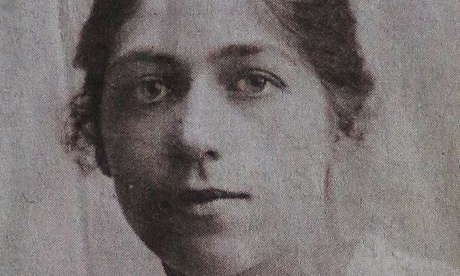
On Friday, the last Victorian in Britain died. Ethel Lang was 114 and the last person left in Britain born in the reign of Queen Victoria. She was born in Barnsley in 1900 when Victoria was old and sickly. Yet the butterball queen was still writing her diaries, bombarding her prime minister with questions and avidly presiding over a quarter of the world’s population.
It seems incredible that last week there was still one of Victoria’s subjects left alive. Little could seem more alien to modern Britain than the Victorian period – and not only the street scenes of crinoline-clad women in horse-drawn carriages, child chimney sweeps and shocking poverty. When Ethel was born, the second Boer War was well under way and Victoria had just visited Dublin in an attempt to quell calls for home rule. The Labour party had only just been created and Australia was six separate colonies. Just a few years before Ethel’s birth, Victoria celebrated her diamond jubilee, a blustering celebration of empire, pride and progress.
Victoria died in the year after Ethel’s birth. Britain was now ruled by Edward VII. But the people clung to the memory of their old monarch and still saw themselves as Victorians.
Ethel, one of six daughters who went to work in a shirt factory when she was just 13, has been our lone Victorian for some time. The last one before her was Londoner Grace Jones, born in December 1899, who died in 2013. In 1993, we lost Charlotte Hughes, Britain’s oldest verifiable person to date, who was born in 1877 – and treated to a New York trip on Concorde for her 110th birthday.
Ethel lived through astonishing changes: six monarchs, two world wars, 22 different prime ministers, the invention of the computer, the internet, heart surgery, IVF, the mobile telephone and GM foods. In the year of her birth, 115 people died in Salford from beer mistakenly poisoned with arsenic; now we grumble at EU health and safety laws. And the empire is no more: between 1945 and 1965, the number of people living under British colonial rule dropped from 700 million to five million.
But are we really so far from the Victorians? Much of what our society holds important was shaped in the 19th century. Britain’s passion for Christmas and huge white weddings dates from Victorian times – both were low-key celebrations before Victoria and her PR machine. We still govern countries as part of the Commonwealth and reserve the right to tell others what to do. Our tiny country is one of five permanent members on the UN Security Council – and we believe our alliance with the United States is the strongest in the world. And although beer is arsenic-free, we use substances whose true impact we don’t fully know – from chemicals in plastics to cosmetic treatments and preservatives.
“The sun never goes down on her empire and all glory in being her subjects,” said Chief Letsie of Basutoland in the golden jubilee in 1887. Still often interventionist, convinced of our importance in the world, even those of us born long after 1900 live in a country that is much more Victorian than we think.
Dr Kate Williams’s books include Young Elizabeth: The Making of Our Queen

